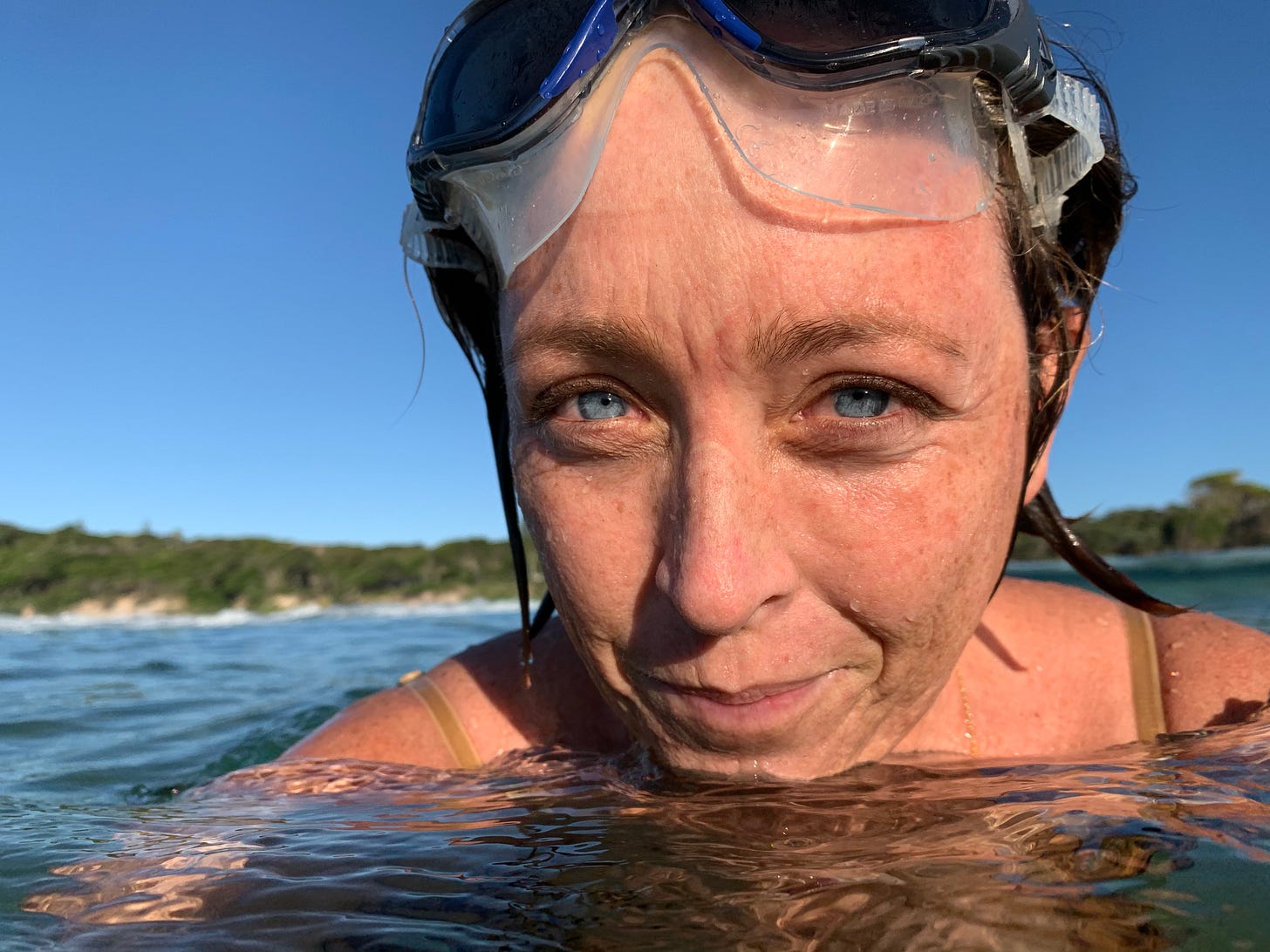Rebecca Olive: 5 Things I've Learned About Our Relationship to Nature.
In this special guest post, exclusively for paid subscribers, surfer, swimmer, academic and writer Rebecca on ways to make our relationship with the natural world more equitable
I never surfed while growing up. Instead, I pursued ballet, played field hockey, swam, sang, and played music. I was always willing to try anything, except for surfing. Despite having numerous opportunities to paddle out, I steered clear of riding the waves. Surfing seemed like something exclusively for boys, even though I spent many hours at the surfboard factory where my mother worked.
So it still surprises me that I have now spent around 15 years researching lifestyle and action sports, such as surfing and swimming, and my interest in them shows no signs of diminishing. There is something fascinating about how these sports immerse us in ecosystems while simultaneously requiring us to navigate complex cultural dynamics.
“To swim, surf, hike, or climb is to put ourselves in relation to ecosystems, to open ourselves up to encounters, and to embrace the various ways in which all this makes us vulnerable. Paddling out into the ocean is to live in the world as it is, rather than as we would like it to be”.
My research began by focusing on women's surfing, shifted to explore beach localism and colonial politics, and now centres on how ocean sports shape our relationships with the environment and inspire us to take better care of it. Of course, it's not only ocean sports that accomplish this; my work has learned much from activities in forests, mountains, snow, and concrete landscapes. These locations represent complex ecosystems interwoven with relationships between animals, plants, water, minerals, weather, technologies, pollution, histories, politics, and other people. Nothing remains static, nothing is definite, and everything is in a constant state of change. The only constant is that people - humans - are never truly in control.
To swim, surf, hike, or climb is to put ourselves in relation to ecosystems, to open ourselves up to encounters, and to embrace the various ways in which all this makes us vulnerable. Paddling out into the ocean is to live in the world as it is, rather than as we would like it to be. It requires navigating waves and currents, brushing against seaweed, colliding with rocks, encountering fish and eels, being unaware of nearby sharks, and absorbing the chemicals, plastics, and pollution that we ourselves have deposited into the water. Participating in these activities means intertwining ourselves with the water, air, rock, or snow.
Recognising this reality brings about certain responsibilities, and it is from these responsibilities that the lessons emerge.


